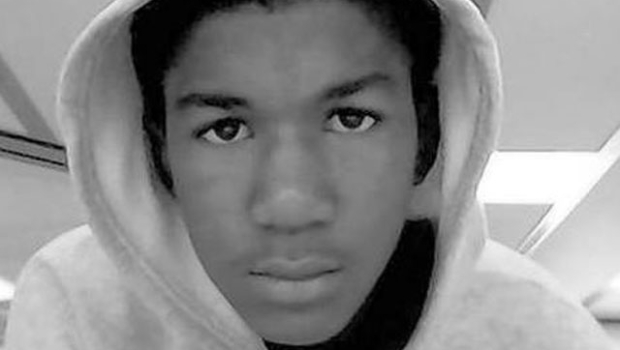 Trayvon Martin was just another teenage boy who kept up with his friends on Twitter and Facebook, musing about whatever came to mind at the moment. The Florida teen was also a big Miami Heat fan. He was a son. He was a brother. He was a friend. He was loved. By the end of the day on February 26, 2012, Trayvon came to symbolize this generation’s Emmett Till.
Trayvon Martin was just another teenage boy who kept up with his friends on Twitter and Facebook, musing about whatever came to mind at the moment. The Florida teen was also a big Miami Heat fan. He was a son. He was a brother. He was a friend. He was loved. By the end of the day on February 26, 2012, Trayvon came to symbolize this generation’s Emmett Till.
A state of emergency was declared in the Black community when Trayvon died and his killer was allowed to walk free. We answered the battle cries, marching for justice in a way that would have made Dr. Martin Luther King Jr. proud that his mantle of advocacy and activism had not been lost to complacency and self identity which took the greater consciousness for granted. Trayvon Martin’s death pierced the lull that had engulfed many since the election of President Barack Obama; post racial America had not come to fulfill the promise of the dream when self proclaimed neighborhood watchman George Zimmerman shot the unarmed Trayvon who had just celebrated his 17th birthday.
A death that impacted one family became personal to the fabric of the African-American life when the circumstances came to light. Zimmerman assumed Trayvon was a criminal because he wore a hoodie and ran from the man who ultimately took his life. Zimmerman also suspected that the bottle of ice tea and skittles Trayvon was carrying were weapons of deadly force, but they proved to be the last reminders of innocence lost.
The finer details of that fateful night will be argued in a court of law later this year. The merits of ‘Stand Your Ground,’ the law which seemingly gave Zimmerman consent to kill if he felt threatened, have already come under scrutiny for both its intent and application. There’s the possibility that the law may be struck down in its entirety. A guilty verdict against Zimmerman would be a nice bow of justice but none of those actions will bring Trayvon back to his grieving family. He’s more than just a symbol. He was theirs.
In death, Trayvon has become a shared bond. We stood in solidarity as a Black boy was gunned down. For many of us, the long strain of prejudice confirmed to us that he died for simply being Black and his killer was given the presumption of being in the right because of his fairer skin. There were so many Black mothers who began to caution their sons not to wear hoodies, lest they become identified as targets. Those conversations were likely similar to those of you as mothers in the 1950’s warned their Black sons not to look in the direction of white women if they didn’t want to meet the same fate as the murdered Emmett Till.
It’s human nature to play it safe, but in an alleged free society, equality for all cannot simply be a mantra. It must be a verb that is put into action. We still yet have to champion for the right of our own to exist as complex individuals who make mistakes, learn and overcome. A teenager should not be pigeonholed and defined by their youthful indiscretions. There were too many headlines that implied and even outright stated that Trayvon got what was coming to him because he wore grills in his mouth and got suspended from school. If the transgressions of our younger days were impugned and determined our future potential, the ascension of Malcolm X would not have been possible. Alas, the world will never know what could have become of Trayvon. That is a lingering tragedy and will continue to be one.
Trayvon Martin is gone too soon but the legacy of his life and death endures. Hoodies up.
Stephanie Guerilus can be reached at @qsteph
Also Check Out:
When Rappers Go Over The Line… The Emmett Till Line
Prophet verse Politician – Martin vs. Barack
Black History Shaped the World
Black Power Hip-Hop, Please Don’t Die
Greg Hall Unveiled. An Interview with the Activist

